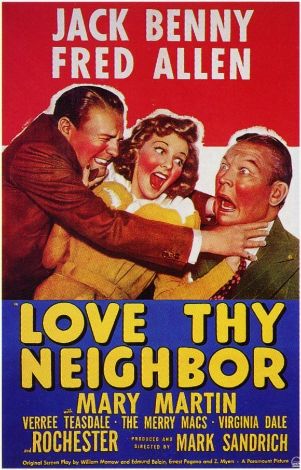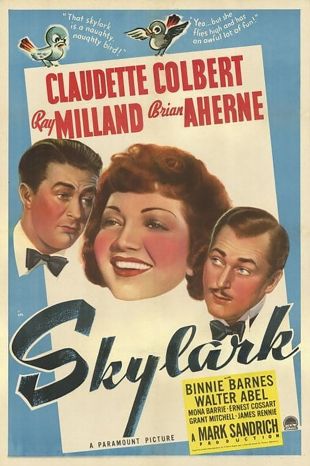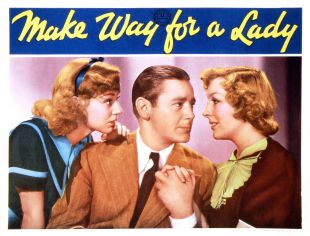Zion Myers was a writer, producer, director in Hollywood from the '20s through the early '40s, who generally specialized in comedy and novelty productions, although he also contributed to several well-known and extremely successful musicals of the period. He was born into an immigrant family in San Francisco in 1898 -- his father was a rabbi from Australia and his mother came from Austria. Eighteen months later there was born a younger sister, Carmel. The family later moved to Los Angeles, and their direct contact with the movie industry began when the elder Myers became one of D.W. Griffith's advisors for the biblical sequences in Intolerance (1916). Carmel was a natural performer and a trained dancer, and entered the movies in small roles that mostly drew on this ability -- she subsequently became a very popular vamp during the heyday of the silents. Meanwhile, Zion joined the industry as a secretary to Carl Laemmle, Sr. at Universal, where one of his colleagues was a young Irving G. Thalberg, who went on to become the chief of production at MGM. Zion joined Metro as a writer, and then a writer/producer in the late '20s. He subsequently became a director specializing in comedies and novelty films. Myers picked up a partner and associate, Jules White, and together the two were responsible for one of the strangest bodies of short subjects ever to come out of MGM or any other major studio -- the "Barkies," short films that utilized all-canine casts in human roles, of which the most familiar example was The Dogway Melody a parody of MGM's own The Broadway Melody using a canine cast.
These movies began in 1929, the year that American audiences began clamoring for a steady stream of talking pictures -- among the shorts that came out that year, according to author Eve Golden, were a pair of canine-cast vehicles, Hot Dog and College Hounds which featured dogs walking on hind legs, and wearing clothes, and even moving their mouths and seeming to "talk." These went over so well, that Myers and White were contracted to deliver a string of them, known as "Dogville" shorts but even referred to in the trades as "Barkies." Myers' and White's own voices could also be heard in these shorts. With those films behind them, Myers and White also somehow were assigned to direct Sidewalks of New York (1931), a definite A-feature starring Buster Keaton. Myers later moved over to RKO, where he served as a production associate on two notable Fred Astaire/Ginger Rogers vehicles, Roberta and The Gay Divorcee. He freelanced for a time, and was back at MGM for a year in the late '30s before landing at Paramount where, as a writer, he began working closely with director/producer Mark Sandrich, as a production associate on the Bing Crosby/Fred Astaire/Irving Berlin vehicle Holiday Inn and also wrote the screenplay for the Jack Benny comedy Buck Benny Rides Again. By the mid-'40s, Myers had gone to work for White -- who, by then, was a producer in Columbia's short subject department -- as a writer, principally on screenplays for the Three Stooges; his credits include Half-Wits Holiday notable as the last Stooges short to feature Curly Howard, and also the early Shemp Howard Stooges vehicle Heavenly Days and his writing credits endured into the mid-'50s thanks to remakes of the original scripts, on Bedlam in Paradise and Stone Age Romeos. He was working as a freelance screenwriter at the time of his death, which came in his sleep from natural causes, in early 1948.


